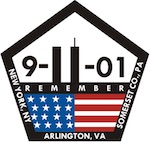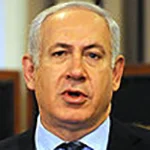The PR community today remembers the nearly 3,000 people murdered 16 years ago during the World Trade Center/Pentagon terror attacks and plane crash in Pennsylvania.
Many PR people can instantly recall where they were when the first tower of the WTC was hit on 8:46 in the morning of September 11, 2001.
 |
I was in a car with a friend emerging from the Brooklyn Battery Tunnel—a building blocked our view of the WTC. We saw silver streams of what appeared to be confetti falling from the sky. Though curious about the confetti, which turned out to be slivers of "skin" from the outside of the WTC building, we weren’t overly concerned because the traffic cop ahead continued to direct cars either toward the FDR highway or up the west side past the WTC. We tuned to an all-news radio station, all sounded normal. The helicopter traffic reporter was giving the usual rundown of delays and updating a congestion problem on the George Washington Bridge. Then it happened. America was forever changed. The traffic reporter must have turned the helicopter around toward downtown because he suddenly let out a shout, “The World Trade Center is on fire.” As we headed up the FDR, the flaming WTC came into view. We made it to work. After checking in with co-workers, I joined the crowd on Fifth Ave. to watch smoke billowing from the WTC. I left the office about noon for the 15-mile trek back to Brooklyn. By the time I reached the financial district, both towers were gone.
In the days, weeks and months following the 9/11 attacks, the PR community stood tall. PR people can take a measure of pride for the role that communications played in restoring a sense of normalcy to everyday life. Communicators calmed jittery investors, employees and consumers. They assured the public that America would bounce back and emerge stronger than ever. The Bush Administration relied on PR to spread its message that those responsible for the attacks would be held responsible for their action.
President Bush used PR as a tool in his “war on terror.” The power of PR though cut both ways. Bush used PR to justify the invasion of Afghanistan, which was the haven of WTC mastermind Osama bin Laden. The President then used that same PR to launch an unjustified war in Iraq, a conflict that was based on a bogus claim that Saddam Hussein possessed a trove of weapons of mass destruction. We are still paying for that war in the form of ISIS, which developed from the rubble of Iraq.
The 9/11 terrorists selected their targets as blows against world trade, US financial/military power and New York City's position as media capital of the world. The 9/11 attacks served and continue to serve as recruiting tools for radical Islam. They taught us that we are all vulnerable to terrorism. Fortress America is a myth in the interconnected and wired world where disaffected young people can become heroes by piloting a plane into a building, driving a truck into people on a crowded street or detonating a suicide vest in a packed concert hall. We must remain vigilant.


 Publicis Groupe CEO Arthur Sadoun puts competition on notice... Macy's throws in the towel as it appoints two directors nominated by its unwanted suitor... The Profile in Wimpery Award goes to the Ford Presidential Foundation for stiffing American hero and former Wyoming Congresswoman Liz Cheney.
Publicis Groupe CEO Arthur Sadoun puts competition on notice... Macy's throws in the towel as it appoints two directors nominated by its unwanted suitor... The Profile in Wimpery Award goes to the Ford Presidential Foundation for stiffing American hero and former Wyoming Congresswoman Liz Cheney. JPMorgan Chase chief Jamie Dimon's "letter to shareholders" is a must-read for PR people and others interested in fixing America and living up to its potential... Get ready for the PPE shortage when the next pandemic hits... Nixing Netanyahu. Gaza carnage turns US opinion against Israel's prime minister.
JPMorgan Chase chief Jamie Dimon's "letter to shareholders" is a must-read for PR people and others interested in fixing America and living up to its potential... Get ready for the PPE shortage when the next pandemic hits... Nixing Netanyahu. Gaza carnage turns US opinion against Israel's prime minister. Trump Media & Technology Group sees Elon Musk's X as an option for those who want the free expression promised by Truth Social but without Donald Trump, owner of 57.3 percent of TMTG... Chalk one up for "anti-woke warrior" governor Greg Abbott as University of Texas lays off 60 DEI-related staffers... Five percent of Americans see the US as its own worst enemy, according to Gallup.
Trump Media & Technology Group sees Elon Musk's X as an option for those who want the free expression promised by Truth Social but without Donald Trump, owner of 57.3 percent of TMTG... Chalk one up for "anti-woke warrior" governor Greg Abbott as University of Texas lays off 60 DEI-related staffers... Five percent of Americans see the US as its own worst enemy, according to Gallup. Nine of the Top 100 firms that participated in O'Dwyer's rankings last year apparently threw in the towel for the 2024 scorecard. Seven other firms also went AWOL.
Nine of the Top 100 firms that participated in O'Dwyer's rankings last year apparently threw in the towel for the 2024 scorecard. Seven other firms also went AWOL. The silence of the White House enables Israel's crackdown on foreign media as it objects to coverage of the carnage in Gaza... Israel plans yet another probe. Promises investigation of its "unintentional" attack on workers delivering food to famine-sticken Gaza... Trump White House media star Hope Hicks to return to spotlight.
The silence of the White House enables Israel's crackdown on foreign media as it objects to coverage of the carnage in Gaza... Israel plans yet another probe. Promises investigation of its "unintentional" attack on workers delivering food to famine-sticken Gaza... Trump White House media star Hope Hicks to return to spotlight.


 Have a comment? Send it to
Have a comment? Send it to 
No comments have been submitted for this story yet.